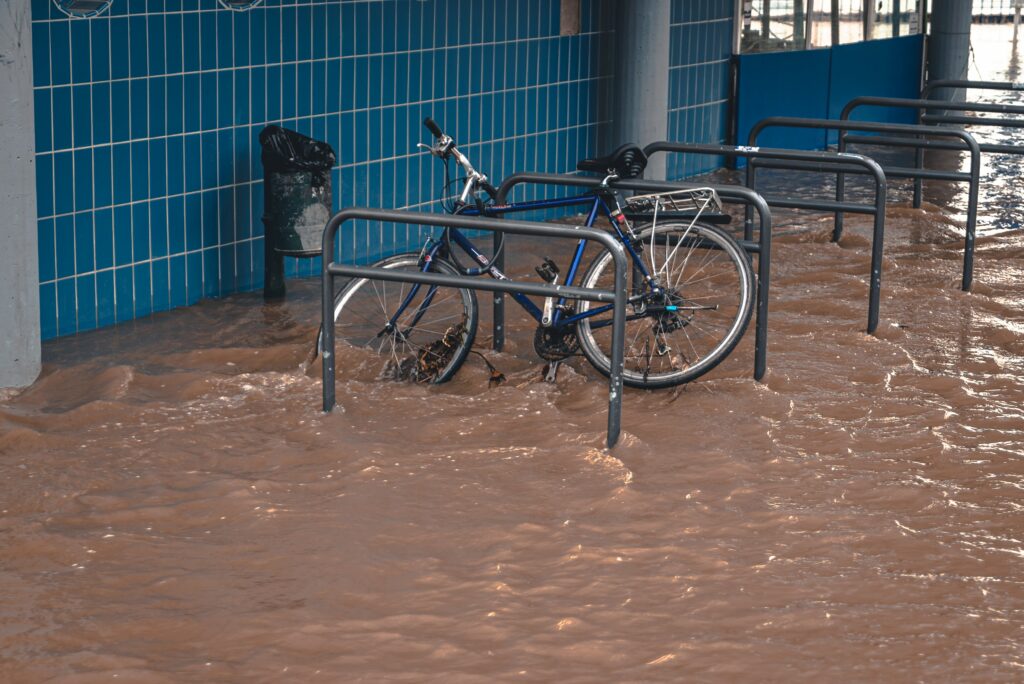5 Personal Health and Safety Precautions During the Flood

No one can hinder such terrible power as a storm. Flood damages or destroys more houses than any other natural catastrophe – single flood damage ranges in trillions.
However, you will be able to minimise some of the disruptions if you know how to brace for a flood and what health-related and safety precautions for flood you should take.
What should you do during a flood?
A flood can be frightening, but try to keep yourself cool and calm. The main thing is to keep your family in a safe place; along with that, if you get time, take these precautions during a flood:
- Turn off the power key switch services.
- Transfer valuables to upper levels, essential paperwork and apparel. Place objects on upper shelves, tables or countertops if you have just one level.
- Sanitizing and filling the bathtub and sinks in the event of contamination of water with new, filtered water.
- If the water threatens to rise, leave home or move upstairs.
- Don’t try to walk through the water when it’s above six inches; lack of balance can result in a bigger disaster.
- Stay away from power lines that have been downed.
5 Personal Health and Safety Precautions During the Flood:
- Keep yourself updated with all emergency news; listen to the radio or TV. Immediately take action on anything asked for.
- Do not go into the stream that flows. Drowning, mostly during flash flooding, is the number one cause of flood mortality. Currents may be tricky; your feet can be knocked off by six inches of flowing water. Use a pole or stick while standing in flowing water to make sure the land is still there.
- Cut off gas and power supply, and upstairs transfer precious material. A comprehensive checklist should be made in advance, so notifying you of an imminent flood will give you little time to plan before execution.
- Do not go close to electricity poles and cables. After sinking, electrocution is the number two flood murderer. Current electricity can fly by water. Give the electricity supplier reporting downed power lines.
- Look before you walk anywhere. During a storm, rubble from broken glass and nails fill the ground and floors, and mud makes it slippery. Thus be careful while making your move.
Diseases caused by Flood:
Here is the list of major diseases caused by the flood:
- Typhoid fever
- Cholera
- Hepatitis A
- Malaria
- Dengue fever
- Hypothermia
Diseases Prevention Precautions and Health Precautions to take:
- Don’t drink water in flooded areas from private wells. Contaminated floodwaters and drinking water get mixed, which may not be suitable for drinking. Catch has a special food hygiene course which can help you personally as well as professionally.
- Don’t eat or drink anything that could or may have been exposed to flood as that would have got germs which are dangerous for your body.
- Reduce skin contact, especially cuts and sores, from floodwater. Clean and wrap them.
- Don’t be in the floodwater nor allow your children to play in it. You should also be aware that even shallow water that flows quickly can sweep you away.
Conclusion:
It is essential to maintain health and take safety precautions for floods. Taking precautions during floods helps to overcome them and keep our family safe and secure. Here is the list of 5 personal health and safety precautions you should take to protect yourself. In such a situation, it is essential to understand the importance of food safety in a pandemic and keep it at a place where they don’t get polluted.
